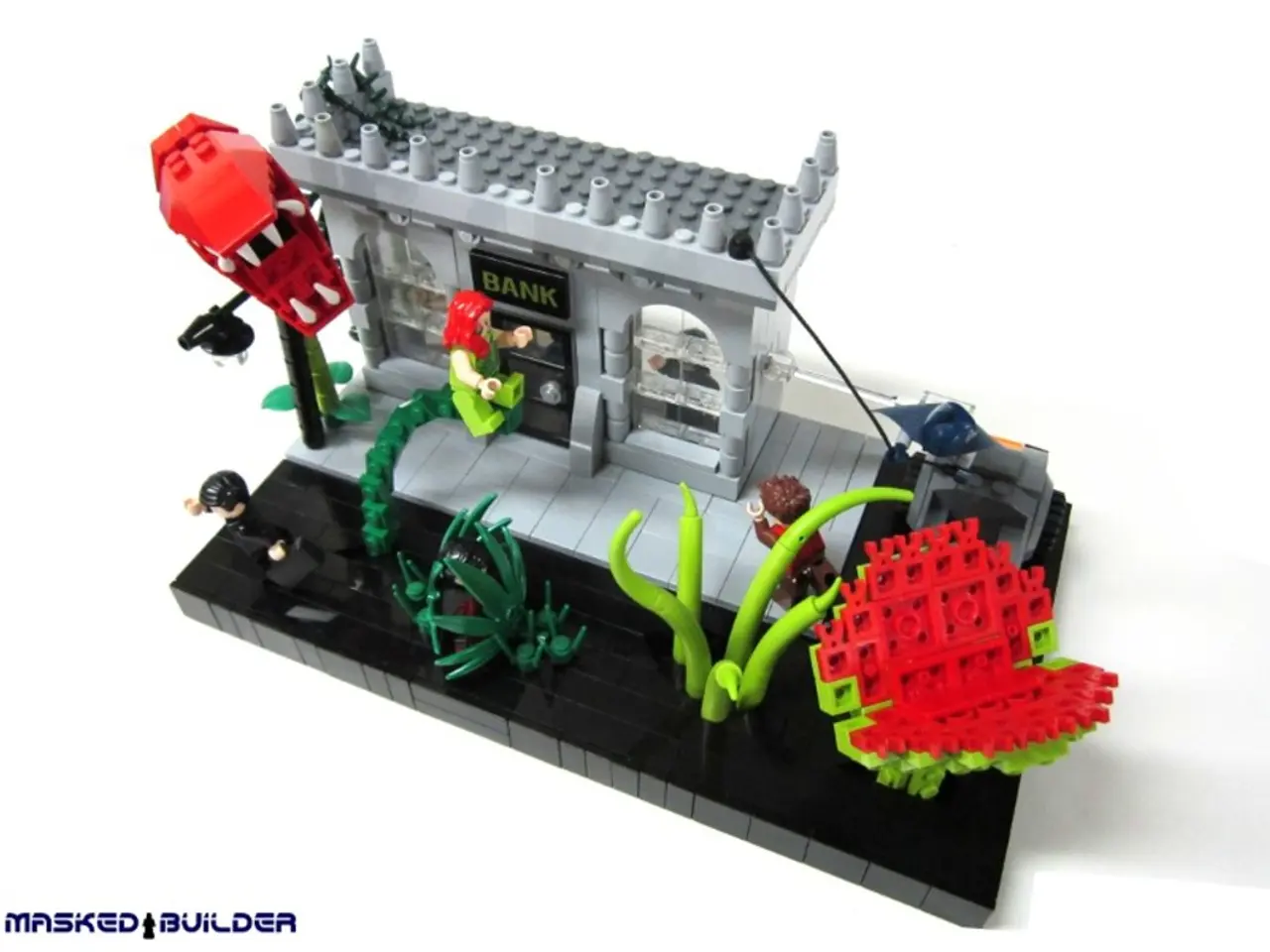Developing Innovative Applications Using Blockchain Technology
In the rapidly evolving digital landscape, blockchain technology is revolutionising the way we think about the digital world. From non-fungible tokens (NFTs) to decentralised applications (dApps) and smart contracts, blockchain technology offers a myriad of opportunities for businesses and individuals alike. This article will guide you through the essential aspects of blockchain app development, ensuring the creation of robust, scalable, and user-friendly solutions.
To embark on a successful blockchain app development project, market research and problem identification are crucial. Developers must understand the current market landscape, trends, and gaps in the industry, identifying potential demand for decentralised solutions and how blockchain can address existing problems. It is essential to clearly define the problem the blockchain app will solve, enhancing transparency, decentralisation, or automation.
When it comes to platform selection, developers should evaluate various blockchain platforms like Ethereum, Polygon, Hyperledger, or Solana based on factors such as speed, cost, scalability, and consensus mechanisms. The choice of platform will significantly impact the performance and integration flexibility of the app.
Technical planning and development are the cornerstones of blockchain app development. Focusing on user experience, interface design, and smart contract architecture is vital. A solid UX coupled with well-structured back-end logic ensures usability and trust. Developing a minimal version of the app, known as a proof of concept, demonstrates feasibility and tests the approach before full-scale investment.
Smart contract development requires building secure and efficient contracts using languages like Solidity for Ethereum or Rust for more complex applications. Integrating blockchain components with the front-end ensures a smooth user experience.
Rigorous testing, including both manual and automated testing, is essential to identify vulnerabilities and ensure the app operates as expected under real conditions. Implementing robust security measures is crucial to protect user data and prevent unauthorised access.
Deployment and maintenance are critical phases in the development process. A strategic deployment on the chosen blockchain platform, coupled with necessary monitoring tools for ongoing performance and maintenance, is vital. Updates and improvements should be planned to keep the app relevant and secure over time.
Choosing the right technology and tools for development is crucial. Popular languages for blockchain development include Rust and Golang, known for their performance and security features. Low-code development tools can speed up the development process, especially for enterprise applications.
User experience and feedback play a significant role in the success of a blockchain app. Prioritising user experience and ensuring the app is intuitive and easy to use is essential. Conducting beta testing and gathering feedback from users to refine and improve the app before full release is crucial.
As new technologies like the Metaverse become reality, NFTs will become essential for trading unique digital assets. Blockchain technology has the potential to change how we think about the digital world, offering advantages to both companies and users.
To achieve success in blockchain app development, it's essential to find a blockchain software development company with the necessary qualifications and development services. When selecting a blockchain software development company, it's crucial to find one that offers honest advice and understands the requirements of decentralised systems.
Building a blockchain app requires the right skills and expertise, as it is not a task that can be easily delegated to anyone. Smart contracts can provide users with a secure way to manage data and offer solutions to their everyday problems on a blockchain platform. Decentralised apps like dApps offer different requirements in terms of hardware and infrastructure compared to traditional apps.
In conclusion, the success of a blockchain development project relies on working with a competent blockchain development team that meets the project's specific requirements. Financial services, healthcare, and retail industries are among those experimenting with blockchain implementation. Blockchain software development is not a passing trend, but a technology being used by companies to build innovative products. Decentralised software development using blockchain enables product decentralisation, offering advantages to both the company and users. NFTs guarantee the uniqueness of digital assets, opening up new possibilities for businesses and users. The increased security of blockchain software makes it an ideal choice for products prioritising data security.
In the digital landscape, understanding market trends and identifying potential demands for decentralised solutions is crucial for blockchain app development. Technical planning, smart contract development, and rigorous testing ensure the creation of robust, scalable, and user-friendly solutions. A strategic choice of platform and technology will significantly impact the performance and integration flexibility of the app. Collaborating with a competent blockchain development team is essential for success, as it enables product decentralisation and promises advantages to both the company and users. The increased security of blockchain software makes it an ideal choice for products prioritising data security, especially with the rise of new technologies like NFTs and the Metaverse.




